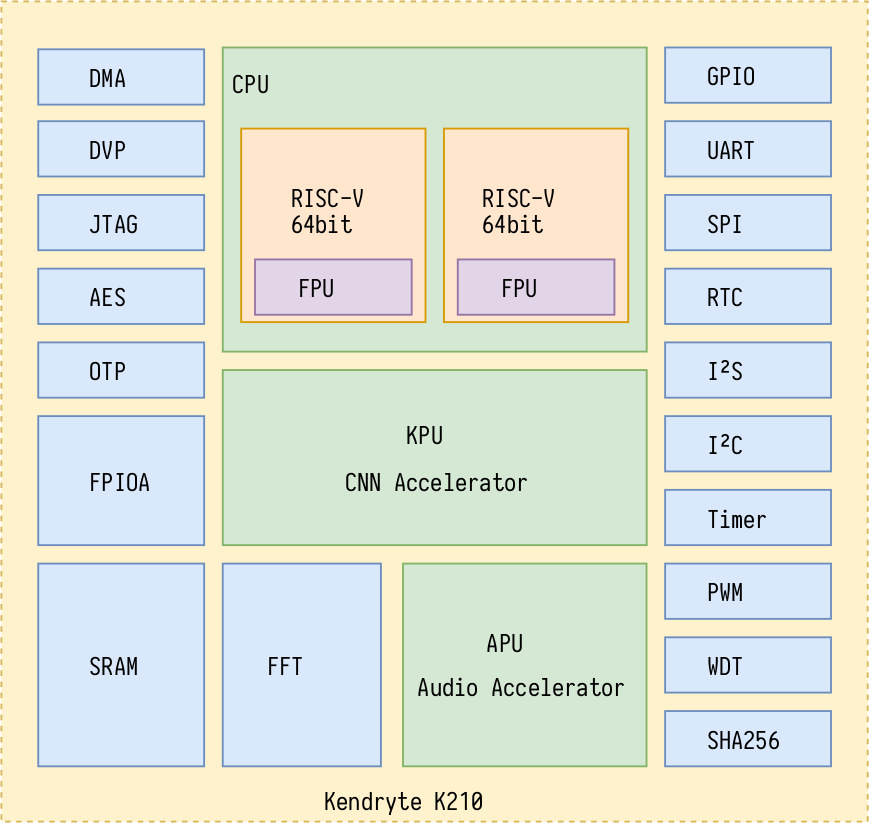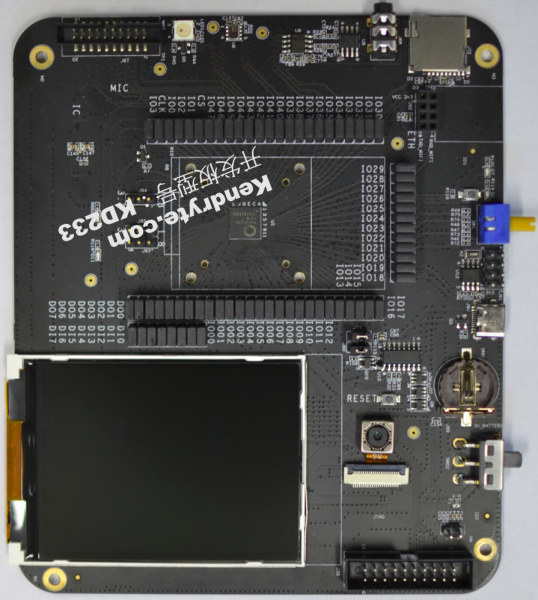RISC-V is talked about a lot, and we’re started to see a few development boards coming to market, or at least being announced with some based on SiFive processors such as HiFive Unleashed or Arduino Cinque, as well as other like GAPUINO GAP8 for low power A.I. applications. The Arduino board is not for sale yet, and HiFive Unleashed and GAPUINO GAP8 are fairly expensive at $999 and $229.
Kendryte KD233 board is another RISC-V development board, based on Kendryte K210 dual core 64-bit RISC-V processor designed for machine vision and “machine hearing”. The board goes for $49.99 on AnalogLamb.
Kendryte KD233 board specifications:
- SoC – Kendryte K210 dual core 64-bit RISC-V processor, KPU Convolutional Neural Network (CNN) hardware accelerator, APU audio hardware accelerator, 6MiB of on-chip general-purpose SRAM memory and 2MiB of on-chip AI SRAM memory, AXI ROM to load user program from SPI flash
- Storage – 128 Mbit SPI NOR flash, micro SD card slot
- Display – TFT LCD
- Camera – DVP camera
- Audio – Microphone header, 3.5mm stereo audio jack
- Expansion – Several I/O headers, header for WiFi module.
- Debugging – USB to UART with CH340C and Type C Connector, there seems to be a JTAG connector too
- Misc – 1x RGB LED, RTC battery slot, reset button, mechanical power switch
- Power Supply – 5V via USB type-C?
- Dimensions – Who knows.

The company has done a pretty poor job at describing the features of their board, but they did release documentation, software and tools like PDF schematics or the SoC datasheet, FreeRTOS and standalone SDK’s, and OpenOCD and 64-bit RISC-V Linux/Windows toolchains on their website.
K210 processor is said to handle image recognition at 60 fps for QVGA resolution, and 30 fps at VGA solution using TensorFlow, Keras, or Darknet DNN frameworks, all the while consuming less than one watt. Power consumption goes down to 300 mW in idle mode. The chip also supports up to 8 microphone, and includes peripherals and interfaces such as FPIOA, UART, GPIO, SPI, I²C, I²S, WDT, TIMER, and RTC.

Jean-Luc started CNX Software in 2010 as a part-time endeavor, before quitting his job as a software engineering manager, and starting to write daily news, and reviews full time later in 2011.
Support CNX Software! Donate via cryptocurrencies, become a Patron on Patreon, or purchase goods on Amazon or Aliexpress




